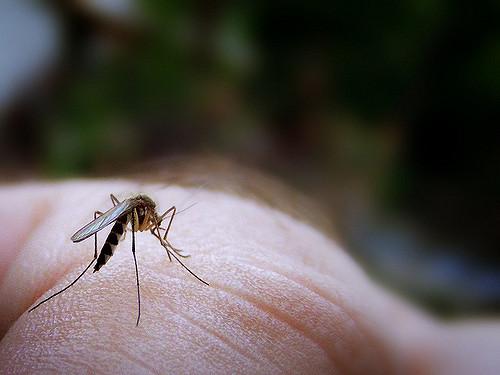After Hurricane Harvey struck Texas and flooded several areas, a rapid rise in mosquitos drove two University of Wisconsin students to study this increase and help with the hurricane relief effort in Texas.
Mosquitos breed in standing water, making flooded areas after a hurricane an ideal home for the insects according to an article by UW-news. Millions of mosquitos have appeared in the southeastern part of Texas, which has interfered with daily life and recovery efforts.
UW students Melissa Farquhar and Erin McGlynn, were dispatched to Texas to assess if the mosquito control methods employed by Clarke, a company that specializes in mosquito control, were effective, according to the UW-news article.
Clarke’s website said after the health department of Texas hired them, they began using aerial sprays of adulticide and traps to kill adult mosquitoes.
UW experts weigh in Hurricane Irma’s unique magnitude, future recovery response
According to a UW-news article, Farquhar and McGlynn were initially flown into Corpus Christi, a city along the southeastern coast of Texas.
“We saw trees and telephone poles down and some buildings that were pretty much flattened,” McGlynn said.
The graduate students were then transferred to Houston four days after arriving where they received a crash-course in the mosquito statistics in Texas, according to the UW-news article.
The team did not test for mosquito-borne diseases, but rather measured the progress of the mosquito-control company, the article added.
McGlynn said she and Farquhar would bring the traps back to their mobile lab in order to identify and count the mosquitos.
UW Athletics shows support for those affected by Hurricane Irma
“I think we were both surprised how little overlap there was in mosquito species between Wisconsin and Texas,” McGlynn said.
Their findings were then sent to the health departments in the area, who are responsible for identifying if the species found could potentially carry diseases harmful to humans.
According to the UW-news article, a typical mosquito trap in that area would normally collect 10 to 20 mosquitos in a night, but workers are now finding several thousand per trap in areas around Houston.
After relief effort teams in Texas realized they were being overwhelmed by the amount of work needed to catalog the increasing mosquito population, they asked Clarke and Dynamic Aviation, a flight company that would assist in the aerial sprayings, to come to their aid, according to Dynamic Aviation’s website.
Farquhar and McGlynn were recruited by Clarke through the Upper Midwestern Regional Center of Excellence for Vector-Borne Disease, a UW department that monitors for disease-spreading species of mosquitos and the effectiveness of control efforts.
Several Centers of Excellence have been set up all over the United States and are funded by the Centers For Disease Control and Prevention, according to the CDC website. The center in Madison is funded by a $10 million grant and is responsible for entomology, the study of insects.
Farquhar said she had studied vector-borne diseases at the UW Arboretum during the previous summer. McGlynn has completed three out of four years of medical school and has an educational background in disaster preparedness and entomology.
“I think it’s a really unique experience to see how companies like Clarke deal with disaster relief,” Farquhar said about her involvement in Texas.
McGlynn said she was inspired to learn more about the subject of disease and insects after taking Dr. Paskewitz’ medical entomology course at UW.
Paskewitz said the problem in Texas is not a disease situation, but an enormous output of nuisance mosquitos that are preventing people from doing serious cleanup work.
The students returned to Madison on Sep. 21 to further study the information they gathered in Texas.

















